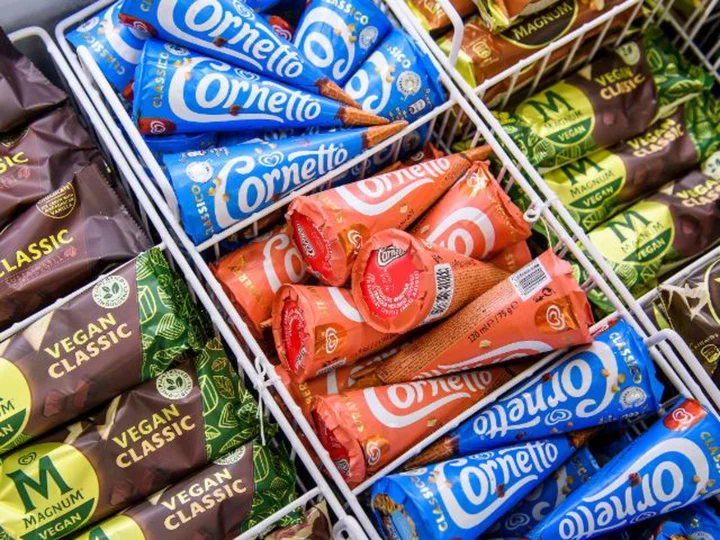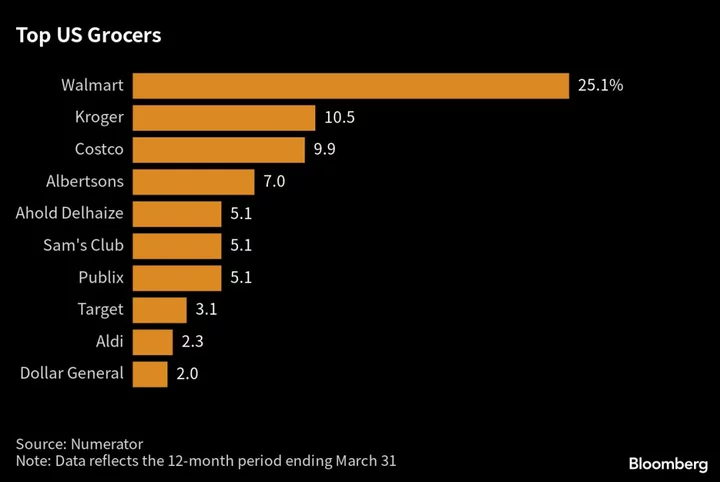Can it ever be too hot for ice cream? According to Unilever, yes.
The maker of Magnum and Cornetto said Tuesday that the heat wave currently searing Europe could actually put consumers off the frozen dessert.
When it comes to the weather, "there's a sweet spot for temperature," Unilever's chief financial officer, Graeme Pitkethly, told journalists. "When it gets too hot, people move away from ice cream and buy a cold drink instead," he said.
Unilever, which also owns Ben & Jerry's, saw a strong pickup in its out-of-home sales in Europe, which include those to restaurants and catering companies, after a cold snap in April and May gave way to warmer weather in June.
But temperatures have soared over the past few weeks, breaking local records in parts of Spain and Italy and contributing to raging wildfires in Greece. Health officials have urged residents and tourists visiting southern Europe to drink plenty of water and stay indoors.
Unilever, which sells tubs of Carte d'Or and Breyers, said sales of in-home brands of ice cream were muted in the first six months of the year as consumers, squeezed by inflation, cut back on non-essential spending. The consumer goods giant commands a fifth of global ice cream sales, according to Euromonitor.
The company's overall ice cream sales grew 5.7% in the first half of the year in value terms, compared with the same period in 2022. Sales growth was driven by a sharp increase in prices even as volumes dipped.
Price rises across Unilever's products helped push up its sales by 9.1% in the first half, even though volumes fell marginally. The company, which also makes Dove soap and Domestos bleach, said price increases would "moderate" throughout the year as inflation in its input costs eased.
Speaking to analysts, CEO Hein Schumacher cautioned, however, that volatility in agricultural commodity markets — including the impact of the Ukraine war on wheat prices and the effects of drought in southern Europe — could still drive food prices higher.
Shares in the company climbed 5%, after it raised its forecast for revenue growth for the year to more than 5%.
Schumacher — who joined Unilever on July 1 from Dutch dairy company Royal FrieslandCampina — told journalists that there was an opportunity to "step up performance" and "realize Unilever's potential." He will set out his plans for the business when the company reports third-quarter earnings in October.





![Costco July 4th hours: Is Costco open Fourth of July? [Updated July 2023]](/i/en/lifestyle/2464f988-2247-b31c-d5c0-534a3f7afd3c.webp)



